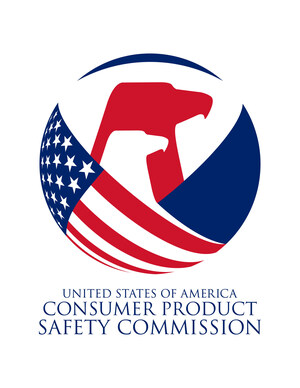WASHINGTON, June 24, 2021 /PRNewswire/ -- https://www.cpsc.gov/Newsroom/News-Releases/2021/Vacation-Rental-Homes-Can-Pose-a-Deadly-Hazard-Kids-Can-Be-Crushed-to-Death-in-Dangerous-Home-Elevator-Gaps
Vacation rental homes have become a popular alternative to hotels and motels during the COVID-19 pandemic. As COVID-19 restrictions are lifted, the Consumer Product Safety Commission (CPSC) is reminding travelers to take safety with them, especially when staying in vacation rental homes with residential elevators.
Residential elevators can pose a deadly hazard. Consumers who have a residential elevator at home, or use one at vacation rentals, should be aware that a simple push of a button can swiftly turn into a tragedy. In fact, residential elevators were linked to 4,600 injuries and 22 deaths from 1981 through 2019.
CPSC is warning consumers with home elevators, and those who visit homes with elevators, to be aware of a deadly gap that may exist between the elevator door and the exterior (i.e., hoistway) door inside the home. Children, some as young as two, up to age 16, have been crushed to death in this gap. In some incidents, children have suffered multiple skull fractures, fractured vertebrae, traumatic asphyxia and other horrific and lifelong injuries.
A Deadly Gap:
The distance between the inner elevator car door or gate and the exterior hoistway door inside the home may be too deep to protect small children. If the gap is too deep between any exterior hoistway door and the farthest point of the car door (which is often an accordion door), a child can enter and close the exterior hoistway door without opening the interior car door, and become entrapped between the two doors, resulting in serious injuries, or death, when the elevator car moves.
Residential elevators are commonly found in multilevel homes, townhomes, vacation homes and rentals, in addition to large homes that have been converted to inns or bed-and-breakfast hotels. Elevator installers should never allow any gap greater than four inches deep to exist in an elevator entryway, as measured in accordance with ASME A17.1-2016 Safety Code for Elevators and Escalators.
How to Protect Kids and Fix the Gap:
- Consumers concerned about elevator safety, should lock the elevator itself in an unusable position, or lock all exterior (hoistway) doors to the elevator.
- CPSC urges consumers to have a qualified elevator inspector examine their home elevator for this dangerous gap and other potential safety hazards, ensuring that the elevator complies with the requirements of the ASME A17.3-2017 Safety Code for Existing Elevators and Escalators.
- Dangerous gaps can be eliminated by placing space guards on the back of the exterior hoistway door, or by installing an electronic monitoring device that deactivates the elevator when a child is detected in the gap. Consumers can contact their elevator manufacturer, or an elevator installer, to obtain these critical safety devices and protect children from this hidden hazard.
Residential Elevator Recalls:
- Check www.cpsc.gov for recalls of residential elevators. If the elevator has been recalled, contact the recalling company, and get the remedy right away.
- CPSC has worked with manufacturers to recall residential elevators for a variety of hazards:
- Otis Elevator Company Residential Elevators, December 17, 2020, https://cpsc.gov/Recalls/2020/otis-elevator-company-recalls-to-inspect-private-residence-elevators-due-to-entrapment.
- Cambridge Elevating Home Elevators, March 27, 2019, https://www.cpsc.gov/Recalls/2019/Cambridge-Elevating-Recalls-Home-Elevators-Due-to-Fall-Hazard.
- Waupaca Elevator Home Elevators, October 25, 2018, https://www.cpsc.gov/Recalls/2019/Waupaca-Elevator-Recalls-to-Inspect-Elevators-Due-to-Injury-Hazard.
- Porta Residential Elevators, August 3, 2016, https://www.cpsc.gov/Recalls/2016/Porta-Recalls-Residential-Elevators.
- Coastal Carolina Residential Elevators, March 19, 2015, https://www.cpsc.gov/Recalls/2015/Childs-Catastrophic-Brain-Injury-Prompts-Recall-of-Residential-Elevators.
- ThyssenKrupp Access Manufacturing Residential Elevators, September 20, 2012, https://www.cpsc.gov/Recalls/2012/Residential-Elevators-Recalled-for-Repair-by-ThyssenKrupp-Access-Manufacturing-Due-to-Fall-Hazard.
CPSC will continue its investigation into the safety of residential elevators, and advises consumers to report any safety incident involving residential elevators at www.SaferProducts.gov.
For more information, contact Nicolette Nye in CPSC's Office of Communications at [email protected] or at 240-204-4410.
About the U.S. CPSC
The U.S. Consumer Product Safety Commission (CPSC) is charged with protecting the public from unreasonable risks of injury or death associated with the use of thousands of types of consumer products. Deaths, injuries, and property damage from consumer product incidents cost the nation more than $1 trillion annually. CPSC's work to ensure the safety of consumer products has contributed to a decline in the rate of deaths and injuries associated with consumer products over the past 40 years.
Federal law bars any person from selling products subject to a publicly announced voluntary recall by a manufacturer or a mandatory recall ordered by the Commission.
For lifesaving information:
- Visit CPSC.gov.
- Sign up to receive our e-mail alerts.
- Follow us on Facebook, Instagram @USCPSC and Twitter @USCPSC.
- Report a dangerous product or a product-related injury on www.SaferProducts.gov.
- Call CPSC's Hotline at 800-638-2772 (TTY 301-595-7054).
Release Number: 21-153
SOURCE U.S. Consumer Product Safety Commission

Related Links
WANT YOUR COMPANY'S NEWS FEATURED ON PRNEWSWIRE.COM?
Newsrooms &
Influencers
Digital Media
Outlets
Journalists
Opted In





Share this article